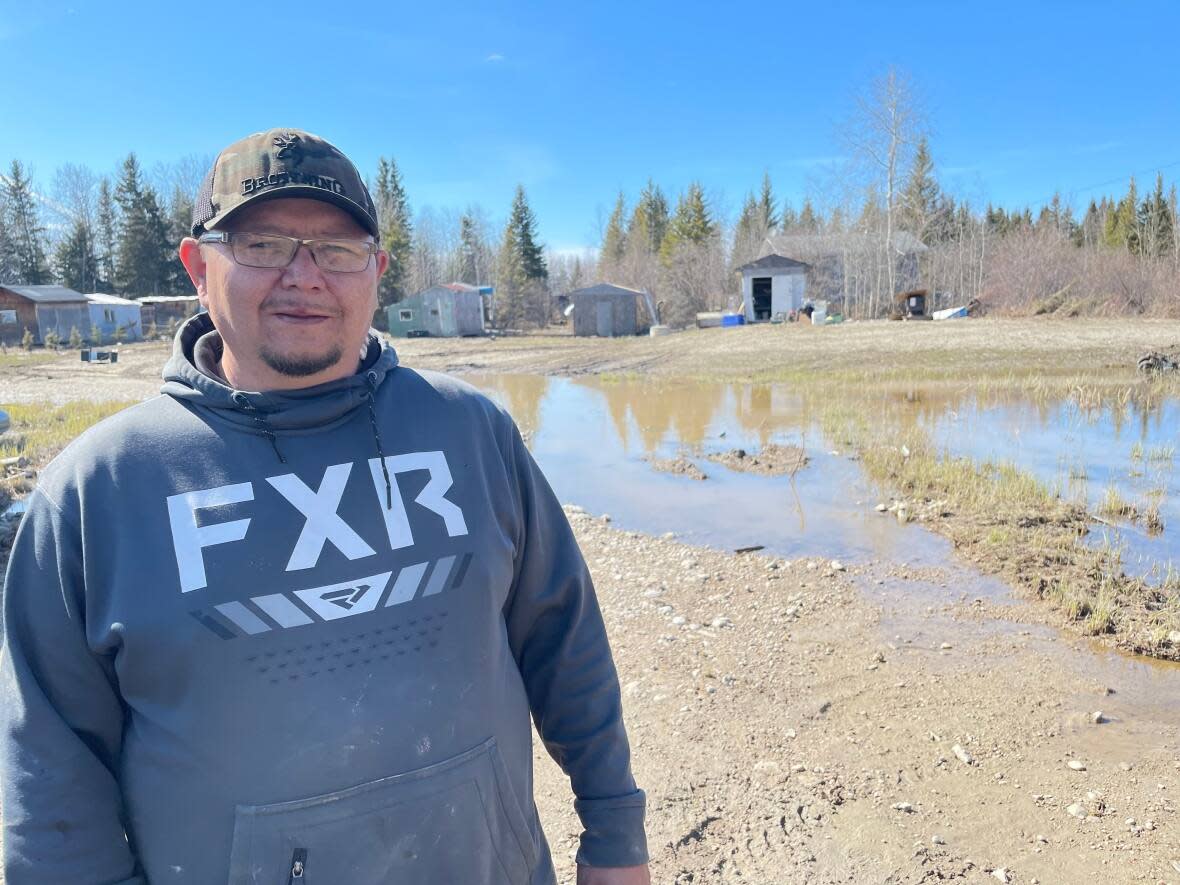Chief starting conversations about West Point relocation after the flood

West Point First Nation Chief Kenneth Cayen said he's starting conversations about relocating the 88-member community he leads to a more suitable area after flooding in May worsened its already severe housing crisis.
Cayen said the First Nation, which is located in Hay River, N.W.T., is "overcrowded" with 15 homes on just four lots of land and he's started talking to the municipality about the possibility of moving. He also plans to broach the subject with Crown-Indigenous and Northern Affairs Canada (CIRNAC) soon.
"We would like to make a bigger community where everybody can live in one place."
Wendy Ross, who works for the First Nation's band office, previously told CBC News the community was considering relocating to higher ground after the flooding. She said that about half of the First Nation's members live in West Point proper.
Cayen said many of the First Nation's members were already living outside of West Point because of the lack of space, even before devastating floods damaged and physically moved some homes.
"The water was so high it lifted the houses right up and turned them into boats and they floated two or three yards over," said Cayen, noting that yards are still full of water.
"Everybody is pretty sad, their whole entire livelihood was washed away."
A 'dire' situation
Fisherman, tourism operator and long-time Hay River resident Shawn Buckley lives in the West Channel, a small community of homes near West Point First Nation, on Vale Island.

Buckley told CBC News his home and shop were damaged by the water, and he described the situation as "dire."
He said there's a lot of work left to be done and he has a hard time keeping all his tasks organized.
The only population happy about the flooding may be Hay River's felines — because the water has led to rodent infestations in some people's homes.
"It seems natural that they need dry places to nest and reproduce so they're coming up into people's homes," said Beatrice Lepine, who lives in Hay River's Old Town neighbourhood.
Lepine said her neighbour has caught about 20 mice in her home. Lepine said her brother's 18-year-old cat, Scooter, also killed his first mouse this week.
"I don't think he ever had any sort of mouse killing skills but this morning he killed a mouse for us," she said. "We're pretty proud of him."

 Yahoo Movies
Yahoo Movies 
